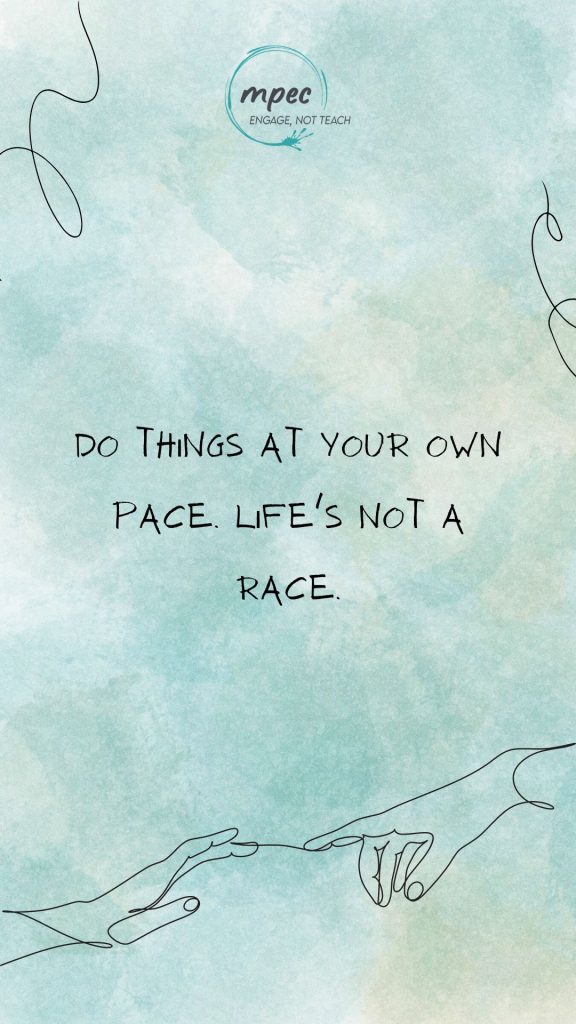Have you ever found yourself setting ambitious goals, only to struggle with turning them into reality? Well, you’re not alone! Goals and habits are the dynamic duo that can help you bridge the gap between aspiration and achievement.
Written with love by: Suzanne Pilch, ICF Certified Coach & MPEC Partner
In this coaching article, we’ll explore the fascinating psychology of habit formation, as outlined by James Clear in his book Atomic Habits. We’ll also delve into the concept of SMART goals, and why they’re crucial in guiding our actions. So, buckle up and get ready to unlock your full potential!
Habits are the invisible forces that shape our lives. They can either propel us towards success or hold us back from reaching our true potential. James Clear, in his groundbreaking book Atomic Habits, describes habits as the “compound interest of self-improvement.” They may start small, but their impact grows exponentially over time.
Clear explains that habits consist of four stages: cue, craving, response, and reward. Picture it like a four-act play. The cue sets the stage, triggering a craving that fuels our desire to act. The response is the action we take, and the reward is the positive reinforcement that strengthens the habit loop. By understanding these stages, we can intentionally shape our habits.

To illustrate this, let’s consider the habit of regular exercise. Imagine your cue is putting on your workout clothes, which sparks a craving for an energised and healthy body. Your response is to head to the gym or engage in a home workout routine. The reward is the feeling of accomplishment, endorphins, and progress toward your fitness goals. By repeating this habit loop consistently, you transform exercise from a chore into a natural part of your lifestyle.
The Power of SMART Goals
While habits are the daily rituals that shape our lives, goals provide the direction and purpose that motivate us. However, setting vague or unrealistic goals can lead to frustration and lack of progress. This is where the SMART goal framework comes into play.
SMART stands for Specific, Measurable, Achievable, Relevant, and Time-bound. Let’s break it down:
- Specific: Define your goal clearly. The more precise, the better. Instead of saying, “I want to be healthier,” specify, “I want to lose 10 pounds and exercise four times a week.”
- Measurable: Establish metrics to track your progress. For example, track the number of pounds lost, inches reduced, or minutes spent exercising each week.
- Achievable: Set goals that are challenging but realistic. Push yourself, but avoid setting the bar impossibly high. Gradual progress is more sustainable.
- Relevant: Align your goals with your values and aspirations. Ensure they contribute to your overall vision of success and fulfillment.
- Time-bound: Set deadlines for achieving your goals. This adds a sense of urgency and helps you stay focused. For instance, “I will lose 10 pounds within three months.”
By following the SMART framework, you transform vague aspirations into tangible targets that propel you forward. Each goal becomes a stepping stone towards a larger vision.

Now that we understand the psychology of habit formation and the importance of SMART goals, let’s explore how these two concepts can work together synergistically. Here are some examples:
- Weight Loss Journey:
- Goal: Lose 30 pounds in six months.
- Habit: Exercise for 30 minutes every morning.
- Result: Consistent exercise habit fuels weight loss and enhances overall well-being.
- Career Advancement:
- Goal: Obtain a promotion within one year.
- Habit: Dedicate 30 minutes each day to professional development.
- Result: Incremental learning and growth position you as a strong candidate for advancement.
- Writing a Book:
- Goal: Complete the first draft in six months.
- Habit: Write 500 words every day.
- Result: Consistent writing habit brings your book to life and keeps the creative momentum flowing.
- Financial Freedom:
- Goal: Save $10,000 in one year.
- Habit: Automate monthly transfers to a savings account.
- Result: The habit of saving reinforces financial discipline and helps you achieve your target.
Goals and habits are the dynamic duo that can transform your life. By understanding the psychology of habit formation and leveraging SMART goals, you’ll set yourself up for success. Remember, habits act as the small steps that propel you forward, while goals provide the direction and purpose. Together, they unlock your true potential, enabling you to achieve your dreams. So, take action today and embark on the journey of self-improvement. Embrace the power of habits and goals, and watch as your life transforms, one small step at a time.
#FormazioneInglese #CompetenzeLinguistiche #SoftSkills #CompetenzeAziendali #ComunicazioneAziendale #GoalGetter #HabitHacker #UnleashYourPotential #ReadArticle #PersonalGrowth #SMARTgoals #AtomicHabits #LinkInBio #TransformYourLife #Inspiration #Motivation #HabitDescriptors #PowerfulAdjectives #WordsForSuccess #GoalHabitsVerbs #NativeSpeakerGoals #PhrasalVerbsInAction #GoalHabitsChat #HabitFormationJourney #AchievingSuccess





